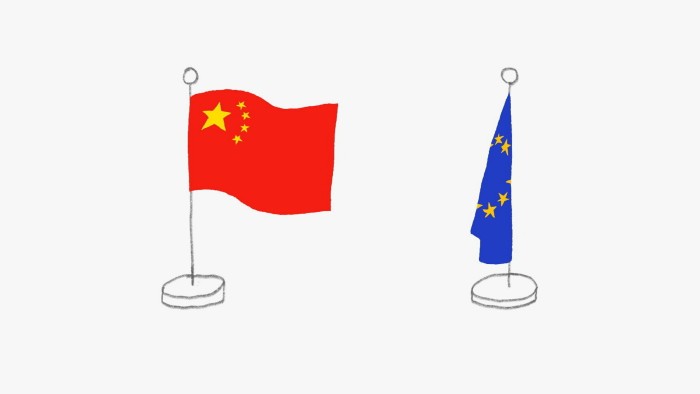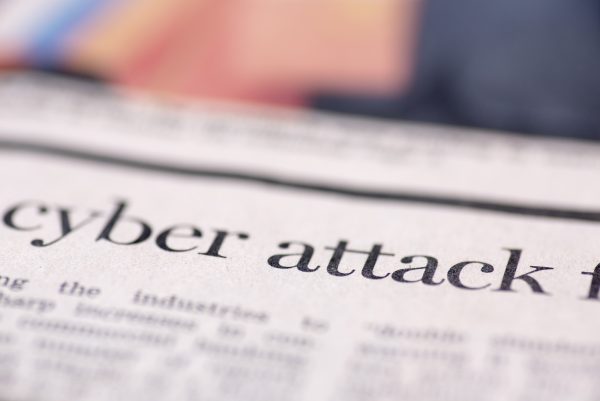The writer is a former Nato secretary-general
This week, EU leaders will touch down in Beijing for the first in-person EU-China summit in four years. The meeting comes at a moment of geopolitical chaos. Russia’s barbaric invasion of Ukraine continues. War between Israel and Hamas could spiral into a wider regional conflict. At home, both Europe and China are grappling with difficult economic conditions. In the face of such challenges, EU leaders may be tempted to take the easy path in Beijing, to avoid contentious subjects and focus on economic co-operation. This would be a mistake.
On trade, the EU has finally woken up to the threat posed by China. European Commission president Ursula von der Leyen has made enhancing the EU’s economic security a hallmark of her term in office. She has called for the EU to “de-risk” from China, by reducing dependency on Chinese-controlled critical raw materials and diversifying supply chains. On recent visits to China, EU commissioners have bemoaned the lack of reciprocal access to China’s market for European companies — contributing to an EU trade deficit of more than €400bn last year.
Tackling unfair Chinese trade practices and over-dependence on China in critical sectors should be on the EU agenda in Beijing. However, the same applies to China’s human rights abuses and military provocations. In Hong Kong, the Chinese authorities have shut free media, ended judicial independence and stamped out all forms of protests. In Xinjiang, China has engaged in systematic abuses against Muslim Uyghurs, including mass internment. If EU leaders fail to raise these issues with President Xi Jinping, they will be betraying their values.
Most critically, EU leaders cannot ignore China’s military provocations against Taiwan. The Chinese navy and air force have ramped up exercises over the past year. Fighter jets simulate attack runs, while Chinese warships show leaders in Taipei and Washington how they would impose a naval blockade of the island. Xi is clear about his intention to take Taiwan by whatever means necessary, including a military assault.
Any attempt by China to change the status quo in Taiwan by force would undermine the EU’s values and strategic interests. Over the past 30 years, Taiwan has blossomed into a vibrant pluralistic democracy and one of the world’s most advanced economies. It has become a beacon of liberty in the region, in sharp contrast to the increasingly aggressive, autocratic China under Xi. Taiwanese citizens are clear they want to decide their own future, free of pressure from Beijing. EU leaders must support that right.
Military escalation in the Taiwan Strait would cause economic chaos. More than 60 per cent of global maritime trade passes through the South China Sea. The outbreak of a significant conflict there would send shockwaves around the world. Researchers at the Rhodium Group calculated that a conflict in the Taiwan Strait could jeopardise more than $2tn in economic activity. This would be magnitudes higher than the global turmoil caused by wars in the Middle East and Ukraine, and even the pandemic.
If China did wrest control of the island, it would cause severe damage to Europe’s economic interests. Taiwan produces over 60 per cent of the world’s semiconductors and about 90 per cent of the most advanced ones. If Beijing controlled this manufacturing, it would have a chokehold on the global economy, placing European governments and firms in a position of weakness. EU leaders’ vision of more strategic autonomy from China would be in tatters.
Preventing military escalation by China in the Taiwan Strait should therefore be a priority for the EU. The US recognises the danger. Congress has stepped up military support for Taiwan and President Joe Biden has been unequivocal that US forces would defend Taiwan in the event of an attack. Strategic ambiguity has been replaced with strategic clarity. The same cannot be said for Europe.
Some EU leaders, such as Lithuania’s Prime Minister Ingrida Šimonytė or the Czech President Petr Pavel, have taken a principled stand against Chinese provocations and in support of Taiwan’s democracy. However, others have been less helpful. French President Emmanuel Macron famously said on Taiwan that Europe “must not get caught up in crises that are not ours”. Although he later tried to clarify these remarks, the message heard in Beijing was that an attack on Taiwan would be met with a divided response from the democratic world.
This week, EU leaders must say clearly, and with one voice, that any attempt by China to change the status quo in Taiwan by force would come at an immense cost. Being unequivocal with Xi on Taiwan may make for a more uncomfortable few days in Beijing, but staying silent will cost Europe far more in the long run.



